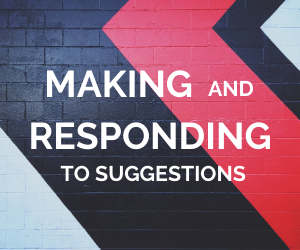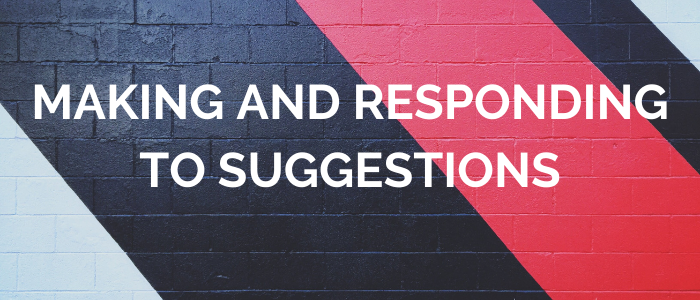- How about a new job?
- How about some orange juice?
- How about dinner at a good restaurant tonight?
| How about + subject + verb?
| How about + verb -ing?
|
| What about + subject + verb?
| What about + verb -ing?
|
However, What about is commonly used to mention an objection or a potencial problem:
B: But what about my English test tomorrow? I haven’t studied yet.
- Shall I help you?
- It's cold. Shall I close the window?
- Shall we have something to drink?
- Shall I bring a bottle of wine?
- Shall we go out to eat?
- Shall we eat now?
- Shall we take a 15 minute break?
Why don't + subject + verb?
- Why don't you get a job?
- Why don't we go to the movies?
- It's cold in here. Why don't you close the window?
- Why don't we go for a walk?
- Why don't we put the tent over here?
- Why don't we bring the small table and put it there?
- Why don't you sit for a moment?
- Why don't you come with us tomorrow?
- Why don't we go to the living room? I want to show you something.
- Why not meet us on our "Facebook" page and become one of our supporters.
- Why not invite your friend for dinner?
- Why not buy from Amazon and get the 5% credit?
| Let's + verb
| Let's + not + verb
|
|
- You could talk to your parents and ask them.
- You might do something.
- We should try out for the team.
- With this temperature you ought to visit the doctor.
- You'd better buy the tickets now.
- That’s a good idea!
- What a great idea!
- That sounds good.
- Why not?
- Yes, with pleasure.
- Yes, I'd like to.
- Thanks! I’d love to.
- Yes, that’s not a bad idea.
- No, let's not.
- I’m not sure.
- What a bad idea!
- I don't feel like it.
- I don’t think I can.
- No, I'd rather not.
- I’d prefer…
- That’s a good idea but…


